“Gross Domestic Product has now become a fetish,” according to economist Raj Patel. Many undesirable things end up adding to GDP: wars, disease, and environmental destruction, for example. Meanwhile GDP fails to measure many desirable indicators of community health. It has led us to live in an ecologically and socially unsustainable fashion. Are you enjoying tapping the brightest minds on the planet? Want to continue to have this kind of access? Join the community of Conversation Earth fans pitching in…
Tag Archives environment
Our 41st episode is a retrospective of Seasons 1 and 2 of Conversation Earth. In this episode we turn the table, as co-producer Kaitlyn Hickmann interviews host/creator Dave Gardner. The two share highlights from previous episodes and discuss the joys and challenges of producing the series. Please comment below to let us know your favorite moment from the series. Thanks so much for listening, sharing and supporting this series. This episode serves as a great sampler, giving you a taste…
Are we all “bystanders” when it comes to responding rationally to the serious environmental crises faced by our civilization? How is our behavior shaped by that of those around us? We’ve all heard of “the bystander effect” in which a large number of people stand by and do nothing to help someone in trouble. According to social norms theory, misperceptions of the attitudes or behaviors of our peers can cause the expression of problem behavior and the inhibition of healthy…
Human civilization can thrive while living within sensible limits imposed by a finite system. “Renegade" economist Kate Raworth manages to tell the truth about what we’re getting wrong in economics, while at the same time inspiring activism and optimism. In this conclusion of a two-part interview, Kate finishes her list of seven fundamentals to achieving a healthy 21st century economy. Her recently published book, Doughnut Economics: Seven Ways to Think Like a 21st-Century Economist, was called “brilliant, thrilling and revolutionary”…
A scaled-up local food system may be the only way we can feed ourselves as we weather the storm of climate change. Until now, CSAs, urban gardens and farmer’s markets have been the face of the local food movement. But Michael Brownlee, author of The Local Food Revolution: How Humanity Will Feed Itself in Uncertain Times, tells us this is not nearly enough. In this episode, the first of a two-part conversation, Brownlee shares how global industrial agriculture is failing…
What exactly are “think tanks” supposed to be thinking about? Are some of them part of a campaign to cast doubt on science when it could interfere with profits? Author Kerryn Higgs recounted the growth-seeking activities of the corporate world in her book, Collision Course: Endless Growth on a Finite Planet. Her research reveals think tanks, industry associations, and even university economics departments all play a role in advancing and preserving our society’s commitment to growth above all else, even…
How and why did our society come to value economic growth so highly that we pursue it at the risk of our long-term survival? For some time scientists have warned that human civilization is living beyond the ecological means of our planet. Yet our commitment to economic growth is unwavering. Australian writer Kerryn Higgs chronicled this triumph of denial over science in her book, Collision Course: Endless Growth on a Finite Planet. This book is impressively researched. She shares her…
We need to change the way we think if we want to extend the shelf-life of our civilization, according to Frances Moore Lappé, author of EcoMind: Changing the Way We Think and Diet for a Small Planet. In this 2017 conversation, Lappé explains some of the “thought traps” to avoid in order to effectively inspire transition from what she calls our “economy of destruction.” She also explains how democracy is much more than just a form of government; it is…
We’re not living on Earth as if we want to stay, observes Mike Nickerson. In our last episode, Mike Nickerson shared his vision for, and the joy of, making the cultural shift necessary for a sustainable human civilization. In this continuation of the conversation, we explore some of the forces keeping our system stuck in an unsustainable mode. Nickerson leads the Sustainability Project/7th Generation Initiative in Canada, a non-profit organization that collects, studies, develops and teaches ideas, information, technologies and…
Efforts to date are falling far short of achieving the greenhouse gas reduction needed to avoid catastrophic climate disruption. Bioethicist Travis Rieder shakes things up by suggesting ethical use of public policy to encourage smaller families, which would result in dramatic decrease of carbon emissions. Rieder co-authored the paper, Population Engineering and the Fight Against Climate Change. In part two of this 2017 conversation, Rieder shares how he and co-authors Colin Hickey and Jake Earl parsed out what fertility reduction…

